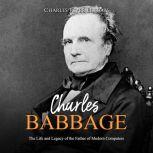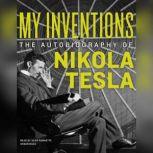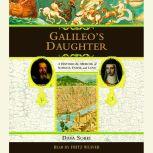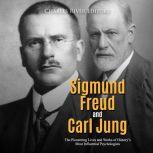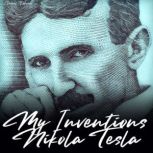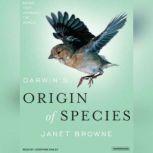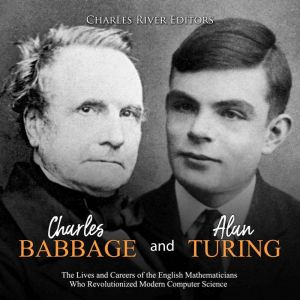
Details
Charles Babbage and Alan Turing: The Lives and Careers of the English Mathematicians Who Revolutionized Modern Computer Science
Author: Charles River Editors
Narrator: Dan Gallagher
Unabridged: 2 hr 58 min
Format: Digital Audiobook
Publisher: Findaway Voices
Published: 03/26/2023
Synopsis
Today, the world is in the midst of the transformative and ever-developing Digital Age, otherwise referred to as the “Age of Information.” It has been an unprecedented, remarkable, and explosive era marked by social media and computer-generated imagery (and with it, deep fakes), among other novel, previously unimaginable concepts. The bulky monitors and blocky towers of personal computers and laptops, which were once upon a time considered fashionable, futuristic contraptions, have since been replaced with a sleek and stylish array – both multi-functional and specialized – of aerodynamic, minimalistic devices, ranging from smartphones and tablets to lightweight laptops and full-fledged gaming set-ups packed with powerhouse processors.
While many are familiar with those facts, and a recent movie revived interest in Alan Turing’s achievements with computing during World War II, it was Charles Babbage who was the first to conceive the notion of a programmable and automatic universal computer, which, on top of its ability to calculate any mathematical equation at an unmatched speed, could also be used for a seemingly infinite number of other applications. In other words, he envisioned the precursor to the modern computer.
Given that he was the one who envisioned a concept so momentous that it ultimately led to the creation of what is now considered the world's first computer, many might be mistaken for thinking Alan Turing was the kind of suave, pipe-puffing dandy that many might associate with such a grand and futuristic idea. In reality, he was nothing of the sort. Turing was hardly the kind of two-dimensional, stereotypically bookish character whose light bulb suddenly went off during an experiment binge either. On the contrary, Alan was a gauche and grief-stricken 17-year-old schoolboy who would channel all the pain and confusion from his poignant heartbreak into his tireless research, paving the path for the deeply transformative Computer Age.
by Charles River Editors
Today, the world is in the midst of the transformative and ever-developing Digital Age, otherwise referred to as the “Age of Information.” It has been an unprecedented, remarkable, and explosive era marked by social media and computer-g...
Published: 07/14/2020
by Scientific American
Sally Ride, the first American woman to go to space, once said that she didn’t set out to be a role model, but after her first flight, she realized that she was one. Like her, the twelve women scientists in this collection became unintentional...
Published: 02/23/2021
by Nikola Tesla
Written by Nikola Tesla at the age of sixty-three, this autobiography is a fascinating glimpse into the interior life of a man who may have contributed more to the fields of electricity, radio, and television than any other person living or dead, a ...
Published: 12/05/2017
by Dava Sobel
Galileo Galilei was the foremost scientist of his day. Though he never left Italy, his inventions and discoveries were heralded around the world. His telescopes allowed him to reveal the heavens and enforce the astounding argument that the earth mov...
Published: 10/04/2005
by Jeremy Gray
Born to a poor Lutheran pastor in what is today the Federal Republic of Germany, Bernhard Riemann (1826-1866) was a child math prodigy who began studying for a degree in theology before formally committing to mathematics in 1846, at the ag...
Published: 01/06/2021
by Charles River Editors
Carl Gustav Jung, the man who created analytical psychology both as a concept and as a practice, was a complicated person. He is also very difficult to understand, partly because so many of his personality traits seem to be contradictory and someti...
Published: 03/20/2020
by Nikola Tesla
My Inventions: The Autobiography of Nikola Tesla is a book compiled and edited by Ben Johnston detailing the work of Nikola Tesla. The content was largely drawn from a series of articles that Nikola Tesla had written for Electrical Experimenter maga...
Published: 06/30/2023
by Janet Browne
A sensation on its publication in 1859, The Origin of Species profoundly shocked Victorian readers by calling into question the belief in a Creator with its description of evolution through natural selection. And Darwin's seminal work is nearly as c...
Published: 03/24/2007
by Jimena Canales
Albert Einstein (1879-1955) was born in Ulm in the German Empire and received his academic teaching diploma from the Swiss Federal Polytechnic School in 1900. Unable to secure a teaching post, he eventually found work in the Swiss Patent Office...
Published: 10/04/2021

